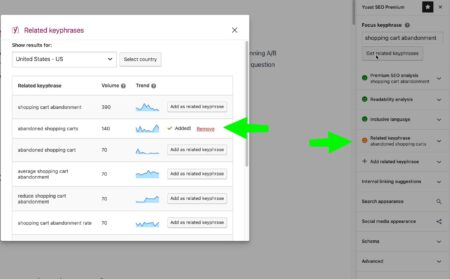Trust Deficit Threatens Guinea’s Peaceful Return to Civilian Rule
In the wake of a prolonged military transition following the ousting of President Alpha CondĂ© in September 2021, Guinea stands at a critical juncture in its political landscape. As the nation grapples with the complexities of returning to civilian governance, a pervasive trust deficit looms over the process, raising alarms about the potential for instability. Despite promises from the ruling junta to restore democratic civilian rule, skepticism among the populace is mounting, fueled by lingering memories of past abuses and a lack of transparency in governance. As international observers and local stakeholders urge caution, the struggle to rebuild trust within the fractured political environment poses significant challenges for Guinea’s future. This article explores the multifaceted dimensions of the trust deficit and its implications for a peaceful transition back to democracy in a country rich in resources yet beset by political turmoil.
Understanding the Root Causes of Trust Deficit in Guinea’s Political Landscape
The pervasive trust deficit within Guinea’s political system stems from several intertwined factors that have historically eroded public confidence. Key among these is a legacy of political instability characterized by frequent coups, authoritarian rule, and contentious elections. Over the years, citizens have witnessed a cycle of broken promises and governance failures, leading to a profound sense of disillusionment. Coupled with corruption allegations against the ruling elite, many Guineans feel their voices are marginalized in the political arena, exacerbating the alienation that fuels skepticism towards both government institutions and elected representatives.
Furthermore, a lack of transparent communication and participatory governance contributes significantly to this deficit. The government’s failure to engage in meaningful dialogue with civil society and grassroots organizations leaves important segments of the population feeling unheard. This disconnection is evident in areas such as:
- Policy implementation – Initiatives often lack community input, leading to ineffective programs.
- Public safety – Instances of violence and unrest are met with silence or repression rather than constructive outreach.
- Resource distribution – Uneven allocation fosters perceptions of favoritism, further eroding trust.
In this context, addressing these root causes is vital for facilitating a return to stability and civilian governance, ensuring that the populace feels their participation is valued and essential to the democratic process.
Strengthening Civil Society: A Pathway to Restoring Trust and Stability
In Guinea, the erosion of trust among citizens and state institutions poses significant obstacles to a successful return to civilian governance. Civil society organizations (CSOs) play a pivotal role in bridging the growing divide, fostering dialogue, and enhancing transparency in governance processes. By engaging diverse community members, CSOs can provide platforms for citizen voices, ensuring that the demands of the populace are heard and addressed. This approach not only empowers individuals but also encourages accountability from government officials, who must recognize their responsibilities to the public. With strategic advocacy and community mobilization, these organizations can serve as mediators in conflict prevention and resolution efforts.
To strengthen the framework of civil society in Guinea, commitment from both local and international stakeholders is essential. Key initiatives could include:
- Facilitating training sessions for grassroots organizations on effective advocacy and governance.
- Enhancing collaboration between CSOs and local governments to manage resources effectively.
- Encouraging transparency through public databases and sharing of governmental budgets.
Furthermore, establishing an inclusive coalition among various civil society groups can amplify their collective impact, leading to a more resilient democratic framework. By prioritizing civil society’s role, Guinea can create a conducive environment for rebuilding trust, ultimately supporting a peaceful transition to stable civilian rule.
Recommendations for International Support in Guinea’s Transition to Civilian Rule
To foster a successful transition to civilian rule in Guinea, international partners must prioritize engagement strategies that rebuild trust among all stakeholders. Diplomatic efforts should focus on facilitating dialogue between the military junta and civilian political groups to create a roadmap for elections that reflects the will of the populace. Additionally, working with regional organizations such as ECOWAS can help provide a platform for overseeing the transition process and ensuring compliance with agreed timelines. The international community should also consider monetary support for independent electoral commissions to enhance their capacity and credibility.
Moreover, capacity-building initiatives will be essential in equipping local civil society organizations with the skills necessary to engage in monitoring and advocacy during the transitional period. This includes training in human rights, governance, and election observation to foster a more robust civil society. Furthermore, international actors should focus on economic incentives to encourage reforms within the transitional government. This could involve conditional assistance aimed at economic reforms that promote stability and enhance public trust in governance, ultimately contributing to a more resilient political process.
Closing Remarks
In conclusion, the persistent trust deficit within Guinea’s political landscape poses a significant obstacle to the nation’s aspirations for a peaceful return to civilian rule. As the transitional government grapples with widespread skepticism from various sectors of society, including civil society groups and political parties, the need for transparency, dialogue, and inclusive governance becomes ever more pressing. The international community, alongside regional partners, must continue to engage with Guinea’s leaders to facilitate trust-building measures and support efforts aimed at fostering a cohesive political environment. Without addressing these fundamental issues, the potential for stability and democracy in Guinea could remain unattainable, with lasting implications for the West African region as a whole. As the country stands at this critical juncture, the path forward will require concerted efforts from all stakeholders to rebuild the faith of the Guinean populace in their institutions and leaders.







